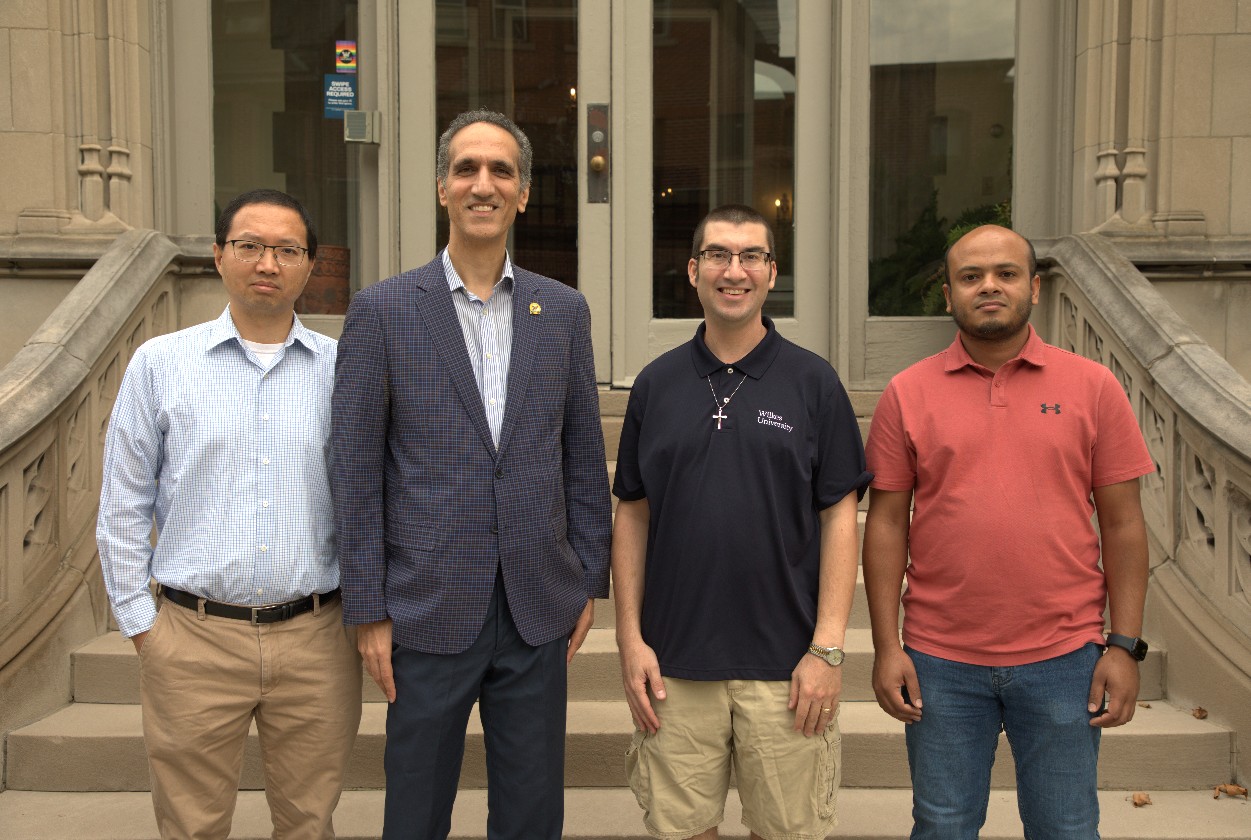Science
Wilkes University Secures $1.2 Million for Technology Education Initiatives

Wilkes University has been awarded over $1.2 million in grants from the National Science Foundation (NSF) to enhance innovation and workforce development in the region. This funding will support two major projects aimed at addressing critical technology needs and fostering educational opportunities in the field of artificial intelligence and robotics.
Greg Cant, President of Wilkes University, emphasized the significance of this achievement, stating, “This is a tremendous achievement for our faculty as well as the greater community.” The projects, titled “Experiential Learning for Artificial Intelligence-Driven Robotics in Northeast Pennsylvania (EXPLOR-NEPA)” and “Building Relationships in Innovation and Development for Growth in Emerging Technologies (BRIDGE-TECH),” are designed to create pathways for technology education and collaboration between academia and industry.
Innovative Projects for Workforce Development
Both initiatives are set to deliver hands-on technology education, facilitating partnerships between academic institutions and industry leaders. Abas Sabouni, Professor of Mechanical Engineering and Chair of the Mechanical and Electrical Engineering Department, is a principal investigator for both projects. He described the proposal process as “intensive but rewarding,” highlighting the collaborative effort that resulted in comprehensive proposals aimed at long-term sustainability.
According to Sabouni, “The long-term impact will be a sustainable model for connecting education, innovation, and industry in the northeastern Pennsylvania region and beyond.” EXPLOR-NEPA, a three-year experiential learning program funded by the NSF’s Experiential Learning for Emerging and Novel Technologies (ExLENT) program, aims to introduce students to the concepts of artificial intelligence and robotics at an earlier stage.
The initiative was developed alongside faculty members Edward Bednarz III, Asif Khan, and Yong Zhu. Their collaboration with local school districts and industry partners has revealed a pressing need for improved access to hands-on technology experiences. “We identified an urgent need to introduce artificial intelligence and robotics concepts earlier in the educational pipeline and to expand access for students from underrepresented and underserved backgrounds,” Sabouni noted.
Expanding Opportunities for Students
The BRIDGE-TECH project, in partnership with Production Systems Automation and local high schools, aims to provide high school students with early exposure to AI-driven robotics and automation. This program will offer structured hands-on learning, mentorship, and dual enrollment opportunities, allowing students to earn college credit while still in high school.
“Our goal is to expand the program to additional school districts, integrate new technologies such as autonomous drones and smart manufacturing systems, and continue refining our experiential learning framework to meet the demands of a rapidly changing world,” Sabouni added.
The funding from the NSF represents a significant investment in the future of technology education in Northeast Pennsylvania. With a focus on innovation and collaboration, Wilkes University aims to empower the next generation of technology leaders through these transformative initiatives.
-

 Science4 weeks ago
Science4 weeks agoInterstellar Object 3I/ATLAS Emits Unique Metal Alloy, Says Scientist
-

 Science1 month ago
Science1 month agoResearchers Achieve Fastest Genome Sequencing in Under Four Hours
-

 Politics1 month ago
Politics1 month agoAfghan Refugee Detained by ICE After Asylum Hearing in New York
-

 Business1 month ago
Business1 month agoIconic Sand Dollar Social Club Listed for $3 Million in Folly Beach
-

 Health1 month ago
Health1 month agoPeptilogics Secures $78 Million to Combat Prosthetic Joint Infections
-

 Business1 month ago
Business1 month agoMcEwen Inc. Secures Tartan Lake Gold Mine Through Acquisition
-

 Lifestyle1 month ago
Lifestyle1 month agoJump for Good: San Clemente Pier Fundraiser Allows Legal Leaps
-

 Science1 month ago
Science1 month agoMars Observed: Detailed Imaging Reveals Dust Avalanche Dynamics
-

 Health1 month ago
Health1 month agoResearcher Uncovers Zika Virus Pathway to Placenta Using Nanotubes
-

 World1 month ago
World1 month agoUS Passport Ranks Drop Out of Top 10 for First Time Ever
-

 Entertainment1 month ago
Entertainment1 month agoJennifer Lopez Addresses A-Rod Split in Candid Interview
-

 Business1 month ago
Business1 month agoSan Jose High-Rise Faces Foreclosure Over $182.5 Million Loan









